Nebraska property taxpayers are dealing with the consequences of two big problems — too many political deals and too much governmental spending, Gov. Jim Pillen told about 50 western Nebraska residents Thursday during a 90-minute town hall in North Platte.
To solve the problem of record-high property taxes, Pillen said one must first understand when the problem began. It took Nebraska 118 years to reach the milestone of collecting $1 billion in property tax revenue each year. During the past 37 years, however, property tax revenues have grown steeply, soaring from $1 billion to $5.3 billion.
Pillen said there are several reasons for Nebraska’s “out of control” property taxes.
He said Nebraska’s refusal of federal funds is a missed opportunity. The federal government is ready to distribute the funds and accepting them could be a game-changer for our state. He shared a conversation with Gov. Kevin Stitt of Oklahoma, who informed him that Nebraska ranked 49 out of 50 states for receiving federal funding.
Pillen said he stand is clear: accepting federal funds is a strategic move to level the playing field with our neighboring states, which could bring positive change and alleviate the burden of high property taxes on our residents.
Pillen also pointed to Nebraska’s extensive tax exemptions. Since implementing a broad-based sales tax in 1967, Nebraska has approved 120 exemptions to the tax, including admission to Omaha’s Henry Doorly Zoo, laundry services, haircuts, certain pet-related services, and agricultural and business inputs.
Pillen pointed to the repeated spending increases during deflation during the Great Recession of 2008 as the final reason for sky-high property taxes. Pillen said Nebraska enjoyed increased reserves during the recession due to the increased demand for ethanol, which led to increased spending year after year. Nebraska is at risk of facing a daily increase in property taxes of $1 million if action is not taken soon.
Pillen firmly believes in running the government like a business: spend less and improve services. For instance, the wait time has been decreased at the Department of Motor Vehicles. The average wait time was 27 minutes, but by implementing new processes, the wait time has been reduced to an average of seven minutes. Pillen plans more spending cuts and wants to do more with less.
Pillen said many “unfunded mandates,” specifically school-related mandates, need to be eliminated. He has initiated “Operation Clean the Closets Out” to identify and remove “unfunded mandates” that do nothing more than “check a box.” Pillen also said he favors “hard caps” on local government spending, increasing those limits only if the people vote for the increase.
Pillen said the state has taken over funding of local community colleges. He said that Nebraska ranked 49th out of 50 states in funding K-12 education. Last year, the state increased funding for K-12 education by $324 million. Pillen wants to move toward the state taking responsibility for all funding for K-12 education.
Pillen is also looking at higher “sin taxes” to help ease the property tax burden. Nebraska has the 42nd lowest cigarette tax. Pillen said increasing those taxes, as well as taxes on liquor and spirits, could help ease the property tax burden. Another way would be to eliminate some or all of the 120 sales tax exemptions.
Pillen calls on residents to call and express their concerns to their state senators. He said if you don’t take time to express your concerns, you have no right to complain when nothing changes.
Sen. Rob Clements of Elmwood said emailing is a great way to get in touch with state senators if you don’t have the time to call. He said all the email addresses can be found online at https://www.nebraskalegislature.gov/senators/senator_list.php.
Several state senators were present and agreed they needed to hear from the people. Those senators were Mike Jacobson of North Platte and Teresa Ibach of Sumner, (representing southwest Nebraska) as well as Lou Ann Linehan, Brad Von Gillern, Mike McDonnell, and Kathleen Kauth, all of Omaha, and Joni Albrecht of Thurston, and Dave Murman of Glenvil.
Pillen summarized his effort: “The concept is really simple: broaden the sales tax, cut spending, cut spending, cut spending, and focus on what we need, not what is nice.” Pillen said the legislature will hold a special session on property tax reform this year but declined to say when.
Pillen said high property taxes affect everyone across the state.
“Decisions must be made according to what is best for Nebraska and we all have to give a little bit,” he said.
Several residents voiced concerns and unhappiness with the current situation surrounding property taxes.
One man said, “You know, and we know that property tax is the issue. We need some type of plan. We are waiting for this to happen.” Another said that all the tax exemptions should go away.
“Quit giving these people a break,” he said.
However, if property taxes are reduced, a woman expressed concern that out-of-state landowners would get a property tax break but not pay any additional sales taxes to help make the difference.
“They will get this tax break and the rest of us are going to absorb it,” he said.

Another man accused the governor of having a double standard in letting people vote on where their tax money goes. He said, “You took away our right to vote,” regarding LB 1402, which repealed a previous bill to allow $25 million in tax credits plus $10 million in state support for private schools. A petition was circulating to repeal that bill.
A man raised concern about depending solely on sales tax this close to the Colorado border, “I will tell you it would be to my advantage to go to Julesburg and open a gas station,” and market it as “the last stop before Nebraska’s crazy sales taxes.”
Another lady said she was initially against the sales tax increase, until she did the math for entry-level wages,
“My daughter would only pay another $180 a year. She will drop that on a pair of shoes,” she said.
Mayor Brandon Kelliher ended the meeting.
“We are all charged with being successful in the environment we are in,” Kelliher said. “This didn’t just happen like that, and it won’t get fixed like that. It takes time, great analysis, and a huge amount of work.”
(Bulletin Editor George Lauby contributed to this report.)

© 2024 The North Platte Bulletin. All rights reserved.






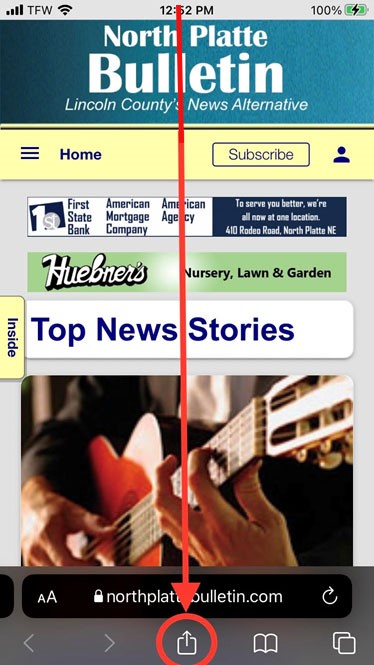
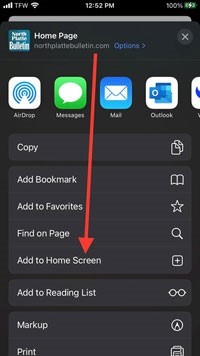
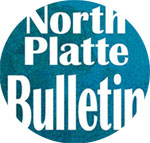





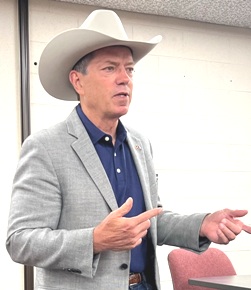















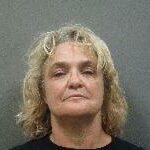


















In 1985 the Dow Jones was averaging right around 1,300 points. Today, even with Biden in office, it’s at 38,500. For those doing the at home math that’s about a 30 fold increase. The cute corn based property tax graph above shows local property taxes collected have only increased at 1/6th the rate the stock market has grown.
I think it’s cute that somebody gave Jim a 10 gallon hat to wear around town, I also think it’s cute he wants to cap “local” government spending but doesn’t seem to think the same should apply to the state itself. It’d be a lot easier to balance that budget if the state could only grown the budget 2% per year.
I mean, it’s not like the state budget was $860 million in 1985 but has increased 18 fold to just north of $15,000,000,000.00 by 2023. Oh wait, yes it is. It’s almost like these state level political types only care about your taxes when they can score political points by “fixing them”. And by fixing them I mean they just rearrange the taxes you pay and then ask you to thank them for their hard work.
Guy, what do you think the government should do at this point? What would you like to see?
The special session dates were just announced: July 26-Aug. 15.
Surely he has a pen and a phone. That’s why we put him there.